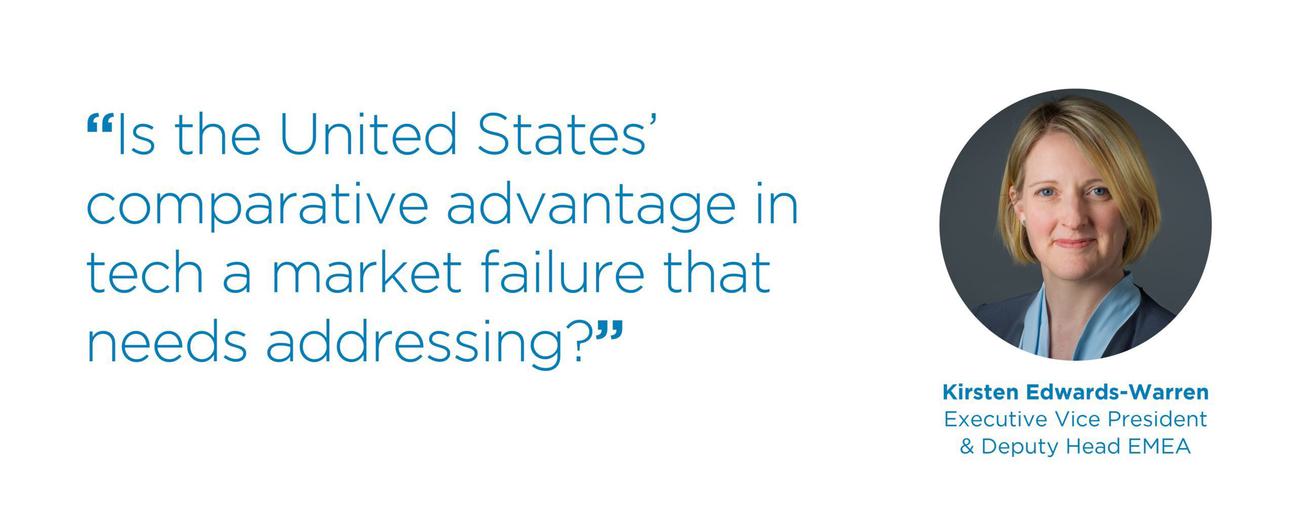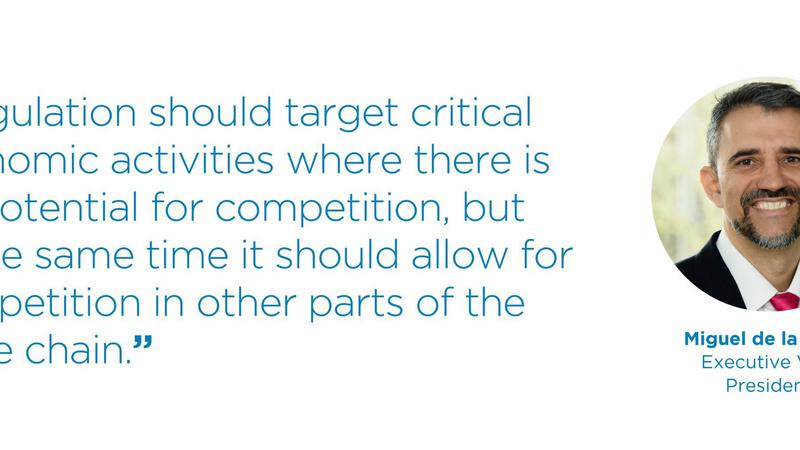What's Holding Back the EU and UK From Creating Platforms?

Share
Kirsten Edwards-Warren joined speakers from the European Commission, Google, Siemens, and Shearman & Sterling on a panel during the 2021 Innovation Economics conference to discuss why the EU and UK struggle to generate large numbers of successful global services platforms. Panel chair William Kovacic, Professor at King’s College London, highlighted the prediction that Europe and the UK will drift further behind not just the United States, but increasingly China as well. But is the situation really that bad? If it is, what should be done about it?
Barriers to scale
Kirsten explained that there are four widely cited reasons why European platforms do not reach the same scale as American ones. First is the ability to raise capital. Second is regulatory differences, third is cultural and language differences that prevent European firms from building network effects as quickly as their American counterparts which operate in a monolingual environment. Fourth is access to skilled workers.
There is some evidence that these barriers do exist, and would limit a European firm’s ability to scale up as quickly as a firm in the U.S. This has implications when network effects and first-mover advantage are important when competing in a global market. Kirsten was not convinced the regulatory difference is the most problematic of these four barriers, but we should be mindful when changing the regulatory framework as impacts are hard to predict.
There is a bigger picture question we should be asking ourselves: is the United States' comparative advantage in tech a market failure that needs addressing?
How could we help tech firms expand in Europe?
In a recent survey, 700 stakeholders in the tech industry (including venture capitalists, founders, angel investors, and employees at tech startups) declared that they felt policymakers did not listen to them. They also felt better communication and access to funding are needed.
There is also evidence that the founders of over half of EU tech startups originated in just five EU tech incumbents, suggesting that hands-on experience is important. Therefore, we could be thinking about opening work experience opportunities for developers.
Watch the event recording:
The Innovation Economics Conference for Antitrust Lawyers, organized by Concurrences and King's College London, took place online between 27 - 30 April 2021. All materials from this webinar are available on the Concurrences website.


